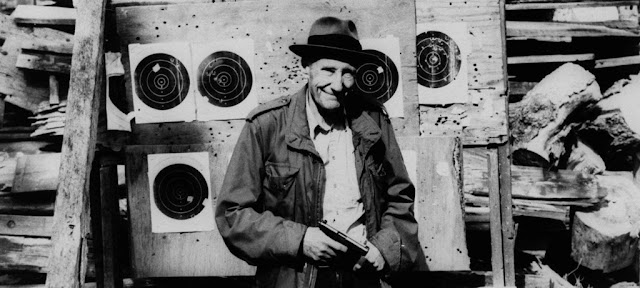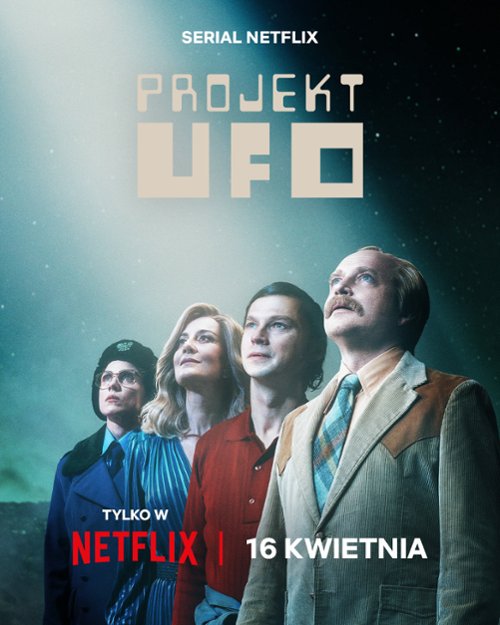A Word Is a Word Is a Collage (1965)
A Profile of William S. Burroughs (1965)
By Bill Butler
Bill Butler was an American poet who served as one of the influential managers of London’s independent bookstore Better Books. In 1967 he moved to Brighton and founded Unicorn Books, which was subject the following year to a nasty obscenity trial involving its edition of J.G. Ballard’s Why I Want to Fuck Ronald Reagan and other works of the underground that were being offered for sale. Butler was friendly with William Burroughs and interviewed him for this previously uncollected profile, first published in the Guardian newspaper on 27 November 1965.
Voice dry as the voice of T.S. Eliot droning from a recording, accent still American after years away from America. Appearance as anonymous as a bank clerk’s, forgettable as a bank robber. Writer of books compared with Kafka, Joyce, and dirty postcards. His bruised readers nurse a sense of outrage and assault after trips through the Burroughs landscape, a desert of screams.
All the time he talks he moves around the room, or groping for cigarettes, or gesturing with nervous hands. He lines the cigarette pack up with invisible parallels, rearranges the ash pattern in the ash tray. His work is sentences from newspapers, conversations, other authors, the title of something he is reading, things he hears, what is happening around him; it all makes a sort of collage. “Brion Gysin first suggested the collage technique to me in 1960. I had been working toward something like the cut-up method on my own. Naked Lunch is partially a cut-up. Gysin said that writing was fifty years behind painting and why shouldn’t something else be done.”
“He had started something he called ‘permutating points.’ When you start moving ‘time,’ the word, around, you get many different meanings. We have quite a few different words in the English language such as ‘Two – to – too,’ ‘I – aye – eye,’ ‘there – they’re – their. Once you move them around, change the word order slightly, meanings change, new things come out. Just by changing the punctuation you can have: ‘We are there. Two know,’ or ‘We are their two. No,’ or ‘We are there to know.’ Words intersect in unfamiliar ways. Change the word order and ‘We are too there. No.’ You can’t do that with French — the whole effort of the academy has been to make a language with no permutations, no interest in it.”
From a pile of newspapers on the bed he picked up and waved the Daily Express: “The English papers are amazing. Lok at the variations in headlines, here in the Daily Express it says: ‘2 A.M. ANXIETY GROWS FOR IKE,’ right here on the front page, the top story. But in this other paper they’ve put it way over on the back page, down at the bottom. Just not the same story.”
He reads a lot of newspapers. For information: “I once knew a junkie that would hold [sic] up with the newspapers, a couple of packages of cigarettes, and some candy bars and read them through from first to last page. Everything. And remembered it too. If he got the chance he’d reel the whole thing back at you, every word of it. I spend most of my time editing and filing. Some of the files are here with me, but not all of them. I couldn’t travel everywhere with them.”
“For ten published pages there are fifty pages of notes on file and more on tape. I use a tape recorder, camera, typewriter, scissors, scrapbooks. From the newspapers and from items people send me I get intersections between all sorts of things. Plane crashes, for example. They come in sequence. A plane piloted by a Captain Clark crashed in California. Now the crash was caused by a crazed passenger, Frankie Gonzales, who shot Captain Clark. The next major plane crash was at Clark Air Force Base in Manila, no survivors. Frankie Gonzales came from Manila. On the plane once, on the Gibraltar-to-Tangier run, the pilot was Captain Clark. Over the loudspeaker came, ‘Captain Clark welcomes you aboard.’ Things like that. They all tie up, there are connections, intersections.”
“If people keep their eyes open they’ll notice these peripheral things around them. Newsweek magazine some time ago ran an advertisement which said: ‘Read by 1,700,000 families in 186 lands.’ Two weeks later the ad came out: ‘Read by 1,600,000 families in 166 lands.’ Why? I’d like to know what happened to those 100,000 families and twenty countries.”
Word Falling, Photo Falling
In his books William Burroughs constantly repeats: “Word falling, photo falling.” He explains it: “I expect to see the formation of an ideographic language. You know Marshall McLuhan in the Gutenberg Galaxy says that a syllabic language conditions thought. Words and photographs are used by vested interests as a control machine to manipulate humanity. But their manipulation depends on people being able to read; so we have universal literacy promulgated. Theocracies, on the other hand, such as the Mayans and the Egyptians, were dependent on an illiterate population where knowledge of even such information as seasonal times for planting rested only with the priesthood. Their control was through ignorance, whereas we today are controlled through the word which we can read.”
“We must find out what words are and how they function. They become images when written down, but images of words repeated in the mind and not the image of the thing itself. Try reading something silently without saying the words subvocally. It’s hard to do. Gertrude Stein’s statement: ‘A rose is a rose is a rose is a rose,’ is true only if written down; but as Korzbyski says, a rose (flower) is, whatever is it, not a rose (word). So a rose (word) is a rose (word) is a rose (word) is a rose (word). No flower.”
Burroughs’ only published books in England so far are Naked Lunch and Dead Fingers Talk, both published by John Calder. When it came out Naked Lunch was greeted in the English press with a near-total retch of disgust. Those critics who actually read the book are answered in this passage from Nova Express, to be published in February by Jonathan Cape:
Their Garden of Delights is a terminal sewer — I have been at some pains to map this area of terminal sewage in the so-called pornographic sections of Naked Lunch and Soft Machine. Their drugs are poison to beam in Orgasm Death and Nova Ovens — Stay out of the Garden of Delights…
Asked who his “they” are, he answers, “The vested interests. Time / Life / Fortune is one. The Luce magazines are nothing but control mechanisms. They’re about as human as a computer. Henry Luce, himself, has no control over the thing now, it’s grown so large. Yet all it would take to bring it down is one technical sergeant fouling up the works, just one technical sergeant. That’s why the ‘Word falling, photo falling’ image. We’ve got to break down the police organization of words and images. I haven’t had time to do it yet but one possibility would be a color alphabet — using colored dots. Obviously it would be impossible to use 26 colors; but a combination using nine colors and a series of dots, based on the syllable and not on the letter — colored dot symbol for ‘ing,’ ‘ed,’ ‘ch,’ ‘wh,’ and so forth would be an improvement. Or an ideographic language like the Mayan or Chinese systems used in addition to the spoken language.
Unlike most authors, whose personae in books and in flesh are different, Burroughs is completely consonant with his writing, quoting from it occasionally; but more generally he simply uses similar wording to express ideas which he is working out in the books. He regards the weapons of the “machine” as varied: “They use sex as an addiction for control, just as they use alcohol and drugs — a program of systematic frustration in order to sell this crock of sewage as immortality, a garden of delights, and love. In our civilization alcohol is the other accepted narcotic since it also induces sleep. And as a crime-producing ‘drug’ it has no rival. This is the world they want to make us live in and like, where they can use the word, the photo, sex, narcotics, and alcohol. And power addiction, many policemen are addicts for power, if it got taken away from them they’d go through agony. Those are their weapons. And the monopoly has records pertaining to anybody that they feel could be of use to them or who might endanger them.”
In Soft Machine, to be published next year by Calder and Boyars, William Burroughs summed himself up with pretty fair accuracy… “So I am a public agent and don’t know who I work for, get my instructions from street signs, newspapers, and pieces of conversation I snap out of the air…”
- View original post





